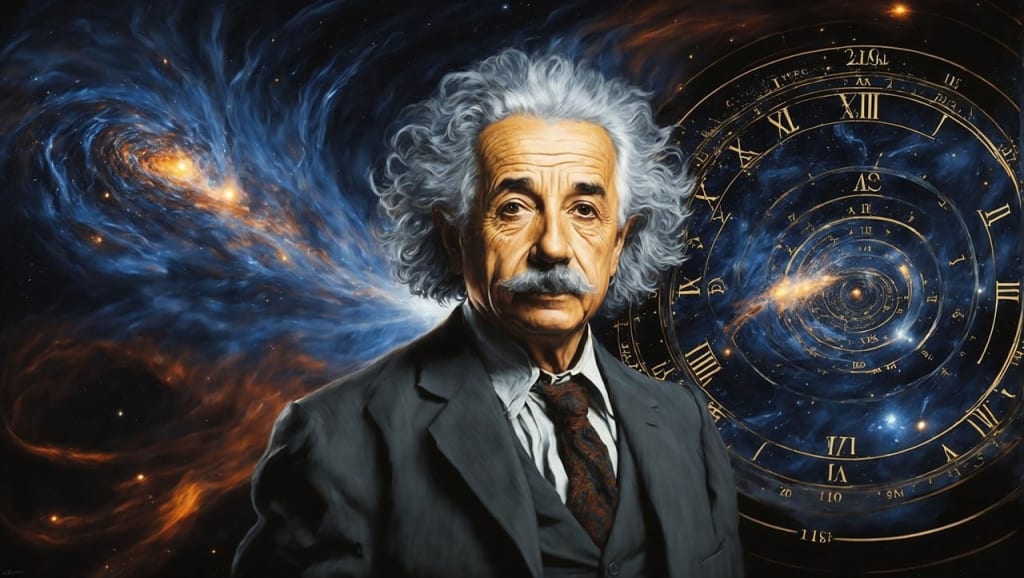
Introduction to Albert Einstein
Albert Einstein, the iconic theoretical physicist, is renowned for his groundbreaking contributions to science, particularly his development of the theory of relativity. Despite his towering intellect and scientific achievements, Einstein was famously absent-minded and forgetful in his daily life. This paradox between his profound genius and his forgetfulness has intrigued many, offering a unique lens through which to understand the nature of brilliance.
Einstein's Forgetfulness: Anecdotes and Stories
Einstein's forgetfulness is well-documented through numerous anecdotes that paint a picture of a man whose mind was so preoccupied with complex scientific ideas that he often neglected everyday details.
Lost in Thought: One famous story recounts how Einstein once left his house for a walk and ended up getting lost in his own neighborhood. He had to ask a passerby for directions to his own home, highlighting his tendency to become completely absorbed in his thoughts.
Simple Tasks: There are numerous tales of Einstein forgetting simple tasks. For instance, he often forgot to eat meals, misplacing his house keys, and even struggled to remember his own phone number. His second wife, Elsa, frequently had to remind him of appointments and daily routines.
Clothing Mishaps: Einstein was notorious for his disregard for fashion and often forgot to wear socks, believing them to be an unnecessary part of his wardrobe. His absent-mindedness in such personal matters further illustrates how his focus was perpetually on higher intellectual pursuits.
The Science Behind Einstein's Forgetfulness
Einstein's forgetfulness can be understood in the context of how the brain prioritizes information. Cognitive psychology suggests that individuals deeply engaged in complex problem-solving and abstract thinking often exhibit signs of absent-mindedness. This phenomenon occurs because their cognitive resources are heavily allocated to these higher-order tasks, leaving less mental bandwidth for mundane details.
Cognitive Load Theory: Cognitive load theory posits that the brain has a limited capacity for processing information. When a significant portion of this capacity is dedicated to complex and demanding intellectual tasks, other functions, such as memory for everyday activities, can suffer.
Focused Attention: Einstein’s intense focus on scientific problems likely contributed to his forgetfulness. Focused attention on one task can lead to inattentional blindness, where an individual fails to notice other, seemingly obvious details because their mental resources are concentrated elsewhere.
The Paradox of Genius and Forgetfulness
Einstein’s forgetfulness serves as a fascinating paradox, suggesting that extraordinary intellectual capacity and absent-mindedness may be two sides of the same coin. His ability to overlook the mundane while unraveling the mysteries of the universe underscores the notion that cognitive priorities shape our behaviors and capabilities.
Selective Memory: Einstein's selective memory, which prioritized scientific ideas over daily routines, exemplifies how the brain filters and prioritizes information. This selectivity may be a common trait among individuals with high cognitive abilities in specific domains.
Creative Genius: Forgetfulness in geniuses like Einstein might also be linked to their creative processes. The brain’s ability to think outside the box and make novel connections can sometimes lead to lapses in conventional memory, as the mind is constantly exploring new ideas and concepts.
Legacy and Impact
Einstein’s forgetfulness has contributed to his enduring legacy, humanizing a figure often idolized for his intellectual prowess. These stories make him more relatable and underscore that even the greatest minds have their quirks and imperfections.
Humanizing a Genius: Stories of Einstein's forgetfulness serve to humanize him, making his incredible achievements even more remarkable. They remind us that greatness does not require perfection and that even the most brilliant individuals have their idiosyncrasies.
Inspiration: Einstein’s ability to achieve groundbreaking scientific breakthroughs despite his forgetfulness can be inspiring. It suggests that human potential is not limited by everyday flaws and that extraordinary accomplishments are possible even with apparent shortcomings.
Conclusion
Albert Einstein's forgetfulness highlights the fascinating interplay between genius and absent-mindedness. His tendency to overlook everyday details while profoundly impacting the field of physics serves as a testament to the complexities of human cognition. This paradox not only adds depth to our understanding of Einstein as a person but also offers valuable insights into the nature of intelligence and creativity. By exploring Einstein’s forgetfulness, we can appreciate the multifaceted nature of brilliance and the unique ways in which extraordinary minds operate.
About the Creator
Marveline Merab
“History never repeats itself. Man always does.”
― Voltaire
Enjoyed the story? Support the Creator.
Subscribe for free to receive all their stories in your feed. You could also pledge your support or give them a one-off tip, letting them know you appreciate their work.






Comments
There are no comments for this story
Be the first to respond and start the conversation.